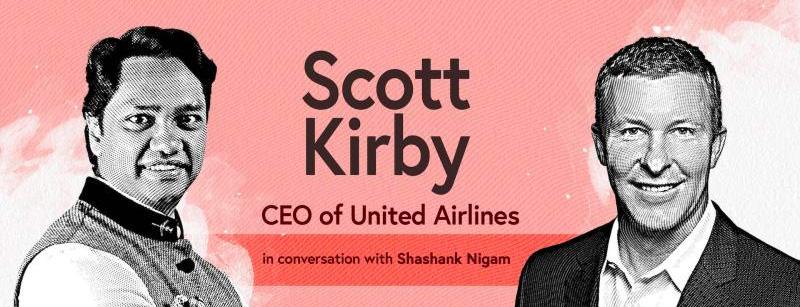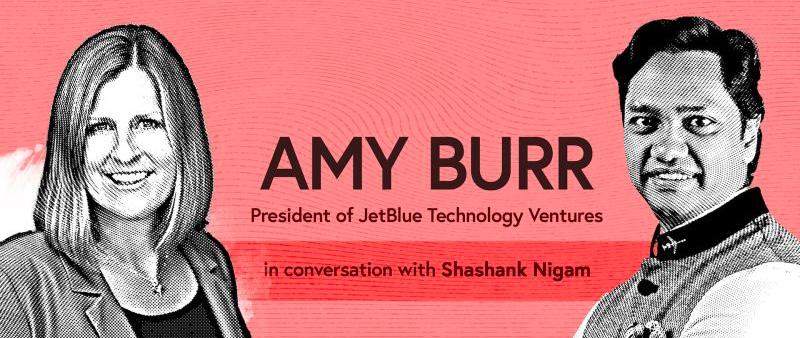
4 minute read
Takeaways From Sustainability in the Air
SUSTAINABILITY NEWS
Takeaway From Season One Of Sustainability In The Air
Advertisement
By Ayushi Badola, SimpliFlying
Sustainability in the Air is the world’s first podcast dedicated to sustainable aviation.
In the podcasts, SimpliFlying CEO Shashank Nigam has in-depth conversations with top aviation leaders, breaking through the clutter and providing a clear roadmap for a net-zero future.
The idea of sustainable aviation sounds bizarre if not oxymoronic. With nearly 2.1% of all human-induced CO2 emissions produced by aviation, the growth of air travel raises pressing concerns about sustainability. Consumers are conscious of the impact of aviation on the Earth and have become wary of air travel.
The adoption of the 2050-net zero resolution by the International Air Transport Association (IATA) aligned the global air transport industry’s goals towards reducing carbon emissions through collective action.
When we launched the Sustainability in the Air podcast on Earth Day 2022, we set out to explore the intricacies of the sustainability challenge.
The looming threat of climate change demands innovative solutions that can only be arrived at through careful research, analysis and debate. We can hope to build a stable, sustainable future only with a realistic grasp of the present.
In each of the nine episodes of Season One, we looked at different aspects of aviation through conversations with airline and tech CEOs and research-based environmental nonprofits. Each episode introduced a new challenge impacting aviation and how the industry is coming together to solve it.
We learnt about sustainable aviation fuel, carbon offsetting, using hydrogen as an aviation fuel, electric aeroplanes and the role of technology, governance and collective action in decarbonising air travel.
This is only the beginning. Through our podcast, we hope to start and lead conversations about the future of aviation in the right direction. We hope to put together a scaffold upon which a sustainable future can be built.
If you’ve not heard the episodes yet you can jump directly to them or read the recap below:

Episode 1: Tony Douglas, CEO of Etihad Airways discusses Etihad’s proactive efforts to attain the 2050 net-zero goals.
Episode 2: CarbonClick CEO Dave Rouse and COO Michelle Noordermeer share how radical transparency and building trust is vital for airlines to implement carbon offsetting programs.

Episode 3: Scott Kirby, CEO of United Airlines explains how United is the carrier to look up to when it comes to sustainability strategy and investments.
Episode 4: Universal Hydrogen co-founder, John-Paul Clarke shares how Hydrogen can help airlines reach their net-zero goals.

Episode 5: JetBlue Technology Ventures (JTV) President Amy Burr speaks about how JetBlue’s technology investments are helping the aviation industry move towards sustainability.
Episode 6: Dr. Patrick Gruber, CEO of sustainable aviation fuel company Gevo, talks about why sustainable aviation fuels are the future of the industry.
Episode 7: Harbour Air Seaplanes CEO, Greg McDougall, shares how Harbour Air is paving the way for sustainable aviation through their innovative electric aircraft technology.
Episode 8: Graham Webb, Pratt and Whitney’s Chief Sustainability Officer, discusses the company’s sustainability strategy and shares how aeroplane engines can move the industry towards net-zero.
Episode 9: ICCT Program Director, Dan Rutherford dives deep into the future of sustainable aviation and the trajectory airlines and governments need to follow to get to net-zero emissions.
Our Take: Season 1 in a nutshell
By Shashank Nigam
Sustainability issues are always fraught with strong opinions, largely because of how large corporations tend to lean towards tokenism and greenwashing instead of substantive efforts.
However, hearing airline CEOs talk about sustainability with such passion was illuminating and refreshing. The desire for change is genuine and there seems to be a significant movement in the industry towards making plans for net-zero.
With new statistics about global warming adding to our anxieties each day, we tend to become impatient and wish for dramatic, radical change, forgetting that the real world is intricate. Effecting change takes time and continual effort and discussion.
So many of the innovations discussed during the first nine episodes have been possible because of smaller changes compounded together. There is merit in believing in smaller disruptions and incremental changes, especially when the idea of those bigger capitalismsubverting changes seems so abstract at the moment.
Change is possible. We may want to dream big but it’s okay to start small. In fact, starting is where change begins.
Every drop matters, every effort counts as long as we’re in this together. Sustainability, after all, is about cooperation not competition. And soon, we may realise that a new world may not be as far as we think it is.
If you’d like to know when Season 2 of our podcast releases, subscribe to our news list, and we will let you know as soon as it is live.










